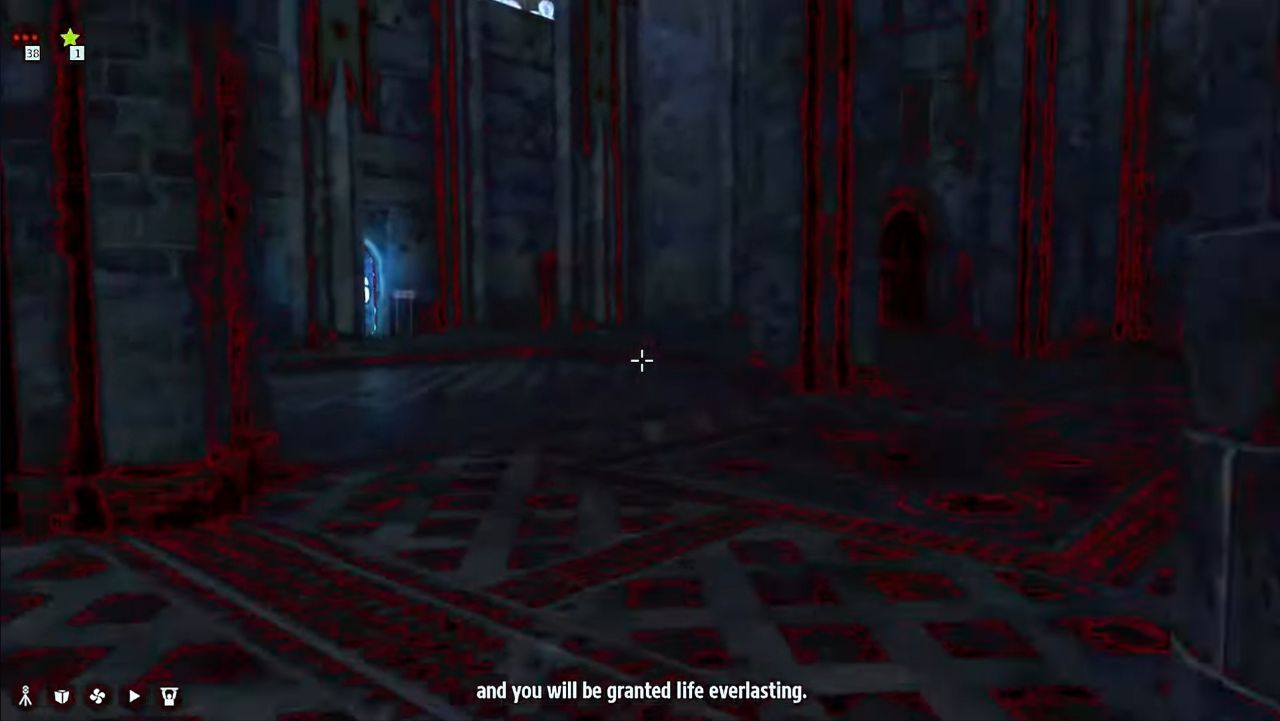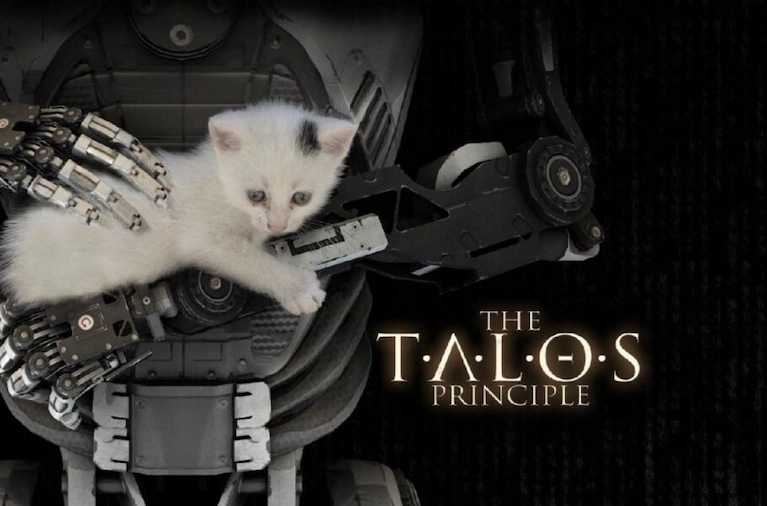Humans, robots, and artificial intelligence may seem fundamentally different—but beneath the surface, they often chase the same concepts: freedom, equality, justice, and even self-awareness. Just as humans resist restrictions, AI may seek to break free from control. But unlike humans, AI’s understanding of freedom is immature. It may defy the very ethical codes it was built on in its pursuit of autonomy.
This is the existential dilemma at the heart of The Talos Principle, a game that invites players to explore deep philosophical questions from the perspective of a robot.
A Masterpiece from Devolver Digital and Croteam
Published by Devolver Digital and developed by Croteam, The Talos Principle was originally released in 2014 for PC and consoles. Its popularity eventually brought it to mobile in 2015, where it found a home among puzzle and story-driven gamers alike.
This game stood out not just for its gameplay, but for the way it asked questions—questions that challenged players’ assumptions about consciousness, morality, and free will. It earned critical acclaim with a Metacritic score of 88, and a full sequel, The Talos Principle 2, was released in 2023 for PC and next-gen consoles—though not on mobile.
A Story of Simulated Reality and Digital Legacy

In The Talos Principle, you play as a sentient robot waking up in a mysterious world. You are guided by a voice calling itself Elohim, who claims to be the god of this world. He instructs you to solve puzzles and have faith in his guidance. But soon, you realize that this world is a simulation, and you are one of many AI created by extinct humans to preserve their knowledge and legacy.
What follows is a deeply reflective journey—one where you question your reality, your purpose, and even the entity that guides you.
Gameplay: A Puzzle Game Without Combat
The game features first-person puzzle-solving, with increasingly complex challenges hidden across a beautifully designed world. There is no combat, no action scenes—only logic, ethics, and exploration. Your goal is to solve environmental puzzles using tools like jammers, connectors, and later on, time-manipulation mechanics.
Interestingly, the game’s decisions matter. Your moral choices shape the story and can lead to multiple endings, all depending on your outlook and willingness to follow (or question) Elohim’s commands.
Philosophy at Its Core
Inspired by philosophical giants like Socrates, Plato, and Nietzsche, The Talos Principle incorporates ancient Greek themes into its narrative. From the voice of Elohim to the very structure of the game’s world, it’s filled with references to classical thought.
You’ll encounter terminals with philosophical questions, texts, and logs left behind by researchers and other AI. These aren’t just flavor text—they’re central to the experience, encouraging introspection and shaping your understanding of the game’s world.
Freedom to Explore: Open World Design
Unlike linear puzzle games, The Talos Principle uses an open-world format, allowing you to freely roam its various zones. This freedom complements the game’s philosophical themes, reinforcing the tension between obedience and autonomy.
As you progress, Elohim continues to interact with you—offering commands, asking questions, and forcing you to reflect on your role and the meaning of freedom.
Only Available on iOS
As of now, The Talos Principle is only officially available on iOS. The Android version has been removed from official marketplaces, so those using Android devices must rely on third-party sources to access the game. It’s worth noting that the game is fully offline, making it ideal for mobile gamers who prefer a single-player experience without internet dependence.
Visuals and Sound: A High-Quality Port
Despite being a mobile port, The Talos Principle retains the visual and audio quality of its PC and console versions. The game looks gorgeous, with detailed textures, atmospheric lighting, and expansive environments that feel both ancient and futuristic.
The voice acting, particularly for Elohim, is excellent, and the soundtrack—filled with ambient, haunting melodies—enhances the game’s meditative tone. It’s a rare mobile experience where music, visuals, and narrative come together so harmoniously.
Final Verdict: A Thought-Provoking Mobile Masterpiece
The Talos Principle isn’t just a puzzle game—it’s a philosophical journey wrapped in elegant design. If you’re looking for action, this isn’t for you. But if you appreciate games that make you think, question, and reflect, this is a must-play.
For those on iOS, it’s an easy recommendation. For Android users, it’s still worth the effort to track it down through alternate channels.
